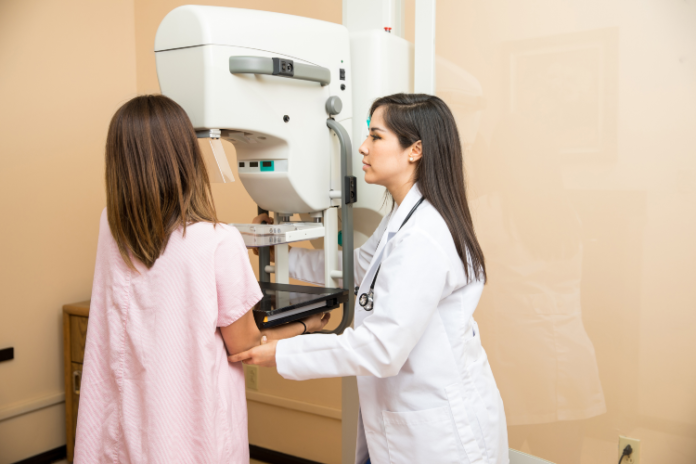Are you overdue for a mammogram? Getting this breast cancer screening every year helps your doctor spot signs of cancer long before you may notice any changes in your breasts.
Like many people in the U.S., you may have put off your usual check-ups and screenings during the COVID-19 pandemic. In fact, you may be one of the 382,000 women who missed breast cancer screenings between March 2020 to March 2021. But even though the virus hasn’t quite gone away, it is safe to get a mammogram once again—and it’s important to keep your appointment.
If it’s been a while since you had a mammogram, these six reasons just may convince you to pick up the phone and make an appointment today:
1. You may have breast cancer even if you haven’t felt a lump. You may not be able to feel a lump if it’s small or deep inside your breast. Mammograms can show lumps and other changes in the breasts that can be caused by cancer before they’re otherwise felt. The screenings use low dose X-rays that give doctors a look at the inside of your breasts.
2. The sooner cancer is caught, the better. Your chance of surviving breast cancer is much better if the cancer is found early. The five-year survival rate is 99% if the cancer is found before it spreads outside the breast, according to the National Breast Cancer Foundation. If found early, your doctor may only need to remove the lump instead of the entire breast.
3. You may be more likely to get breast cancer if family members had it. Your chance of getting breast cancer could be higher if someone else in your family had the cancer. If your mother, daughter or sister had breast cancer, your risk could be nearly double. Keep in mind, however, that you can also get breast cancer even if no one in your family has ever had it.
4. The older you are, the higher your risk of breast cancer. You can get breast cancer at any age, but it’s more likely to happen as you get older. The Centers for Disease Control and Prevention (CDC) reports that most breast cancers happen in women over 50. The American College of Radiology recommends starting yearly breast cancer screenings at age 40.
5. Besides age and family history, there are other things that may increase your risk. According to the CDC, factors that may raise your risk of breast cancer are dense breasts, having breast cancer in the past, radiation treatment of the chest or breasts, starting your period before age 12 or starting menopause after age 55. Talk to your doctor about your risk factors.
6. Mammograms are quick and easy. Getting a mammogram usually takes only 30 minutes or less. Most places that provide screenings offer a choice of appointment times so you can select a time that’s most convenient for you. You might be able to get a screening during your lunch hour, before or after work, or on the weekend.
Information for this article was provided by PIH Health. Schedule your mammogram today at PIHHealth.org/Mammogram or call (562) 906-5692.

